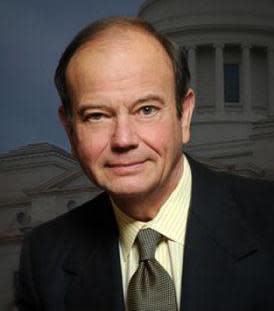Notes on the news | Steve Barnes

• Uvalde, Texas, still mourns, and will mourn until the last of the siblings, parents, grandparents and other kin have joined the children, and the teachers, lost in the slaughter of May 24.
Arkansans know something of mass killings. Near Jonesboro, the Westside Middle School shootings, the work of two preadolescents and the firearms their elders had not secured, took five lives – four students and a teacher – and wounded another 10 pupils. That was a quarter-century ago. Perhaps you remember.
Some things have changed since the Westside tragedy. The federal ban on sales of assault-style weapons expired. Ghost guns are with us now, and bump stocks.
The circumstances are, at this writing, still uncertain, but it appears that on the Saturday morning following Uvalde, a disagreement of some sort between parties, as yet unidentified, occurred near the Little Rock Zoo. It’s a family place, the zoo, located near War Memorial Park in our state’s capital city. It’s educational and fun for young and old alike. And the late spring weather was perfect for a Saturday family outing. The initial Little Rock police press release described what happened that morning as “an isolated incident involving two acquaintances engaged in an apparent dispute." Apparently, the dispute escalated to involve one or more firearms, and in seconds one of the several rounds fired struck a 7-year-old visitor from another city. Her name was Chloe. She liked to dance. She could not be saved.
She was not the first Arkansan, not the first Arkansas youngster, to die in a crossfire –not in the recent past, not even this year.
• A grandfather telephoned from a distance to ask how his grandson was processing the news from Uvalde, from Little Rock, from wherever bullets pierced flesh.
The grandson, though not yet 10 years old, began his day with early morning news programs and has his own subscriptions to Time, The Week and Smithsonian magazines, and caught the evening news shows when homework, scouting and his parents permitted.
“He’s asked about it,” the lad’s father replied, hesitating.
Earlier in the year there was the hint of danger at his school. The teachers weren’t saying anything, but the kid was shrewd enough to realize that something was going on, or might be going on, when he looked through a classroom window one afternoon some weeks ago to see a police car parked near the school’s entrance. Later, parents were told of some vague threat, possibly not a threat.
The cop was there the next day. And the next.
So, of course, the young man asked about Uvalde. And his parents told him that he was safe, and his classmates were too. Of course.
• From Arkadelphia, sad news of the passing of Dr. Daniel Grant, who for 18 years, until his retirement in 1988, was president of Ouachita Baptist University – the job his father had held a couple of generations earlier. Schooled in political science, the younger Grant (he was 98 at his death) was a nationally recognized authority in urban affairs and government before leaving a prestigious post at Vanderbilt University to assume the OBU leadership. Resolutely but warmly ecumenical, intensely but gently intellectual, Grant’s tenure encompassed the Baptist War years, when theological arch-conservatives seized control of the Southern Baptist Convention and began systematically purging its pulpits and endowed institutions of liberal apostates. The doctrinal struggles threatened OBU’s hard-earned, well-deserved reputation for academic freedom, but Grant (and his successor as president, the like-minded, late Dr. Ben Elrod) stood guard.
The “gifted presidential leadership” of Grant and Elrod, their “wisdom, judgment and skill, kept OBU above the fray and enhanced abiding institutional commitments to Christian and academic excellence,” commented Dr. Hal Bass, emeritus professor of political science at OBU.
Side note: Its music department has long been acknowledged as among the strongest of OBU’s assets. But its political science faculty, too, with scholars such as Bass at the forefront. Political junkies of a certain age can remember a couple of other marquee names, professors who did not limit themselves to the academy: Bob Riley, who served two terms as lieutenant governor, and Jim Ranchino, who founded what was then the state’s best-known polling firm.
Steve Barnes is the host of "Arkansas Week" on Arkansas PBS.
This article originally appeared on Fort Smith Times Record: Notes on the news | Steve Barnes
